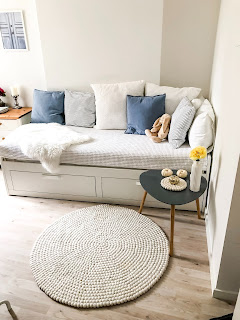Family life and having roommates are both rewarding, but each can also be a challenge at times. One of these times is when you are trying to find a balance between keeping everyone happy in areas where they differ.
When some members of your household are neat freaks, and others are more suited to audition for a hoarding television show, it is not an easy task for everyone to live together. Here are some tips on how your household members of various levels of organization can dwell peacefully together.
Have a Group Meeting
The most important tip on how to negotiate this dilemma is to keep your lines of communication open. Hold regular meetings to discuss the issue. Make it a time where everyone can input and try to keep it light-hearted and as fun as possible.
Decide on Common Goals
Although some family members or roommates may be drastically more or less comfortable with disorganization than others, there are sure to be some common goals you can all agree on. Some of these might be to have a regular group clean-up time, or to keep the living room clean since this is where your visitors spend most of their time when they are over. Choose deadlines that everyone can agree on, and talk about a minimum level of cleanliness that everyone agrees is important.
Decide on a Reasonable Compromise
Perhaps the messiest individual of the group simply may not be able to stay consistently organized, nor leave things spotless all the time. Maybe as a group you could choose certain rooms that need to be tidy, and others that are not so important.
Bedrooms are generally an area where organization can be left to one’s personal choice. This way, if someone has items that need to be put away but they don’t have time to do so immediately when they return home, they know that they can put the bags in their own room or another appointed "messy zone" until they have the time for it.
Make other compromises such as letting family members or roommates switch their cleaning duties with someone else if they are running late from work or have an especially busy day ahead of them.
Let Each Person’s Strength Be Highlighted
No two people are alike, even in the same family. Everyone has different strengths, and this can be capitalized on when you are creating your cleaning schedule. Perhaps one of the household members loves cleaning the kitchen after supper, while another prefers more time-consuming but less frequent tasks such as vacuuming. Create the schedule to cater to everyone’s likes, dislikes and natural abilities.
It can be a challenge to live with someone who is at the opposite end of the spectrum when it comes to household organization, but there is no need to let it destroy your relationships or living arrangements. Stay focused on what you love about each of your roommates, whether it be family or friends. Appreciation for each other and a commitment to working together will help you to live in harmony while taking responsibility together for the home you live in.






